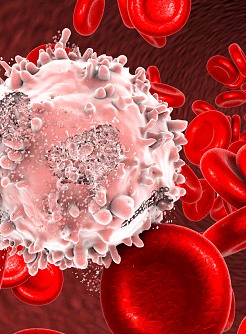NCCN Adds Zanubrutinib to Guideline Recommendations for Patients With CLL, SLL
By Cameron Kelsall, /alert Contributor
February 4, 2021
The National Comprehensive Cancer Network (NCCN) has updated its clinical practice guidelines for the treatment of patients with chronic lymphocytic leukemia (CLL) and small lymphocytic lymphoma (SLL). The revised recommendations include the addition of zanubrutinib, a tyrosine kinase inhibitor (TKI), as a first- and second-line treatment for patients with CLL/SLL.
Zanubrutinib is FDA–approved for the treatment of adult patients with mantle cell lymphoma who have received 1 or more previous therapy lines. The agency has yet to approve the TKI for patients with CLL/SLL.

According to the new NCCN guidelines, it may be considered as a single-agent first-line treatment for patients with 17p deletions and TP53 mutations who are intolerant of or contraindicated to other Bruton’s tyrosine kinase inhibitors.
Zanubrutinib was further added to the “other recommended regimen” category for second-line and subsequent therapy in this patient population. The guidelines previously classified this category of treatment as “relapsed/refractory therapy.”
For patients with CLL/SLL without 17p deletions and TP53 mutations, zanubrutinib was also included as an “other recommended regimen” for second-line and subsequent therapy. This recommendation applies to frail patients with significant comorbidities; patients aged 65 years or older with significant comorbidities; and patients aged younger than 65 years without significant comorbidities, who are intolerant of or contraindicated to other Bruton’s tyrosine kinase inhibitors.
All recommendations for zanubrutinib were Category 2A recommendations.
















.jpg)





.jpg)






.jpg)
.jpg)
.jpg)
.jpg)
.jpg)
.jpg)
.jpg)

.jpg)
.jpg)